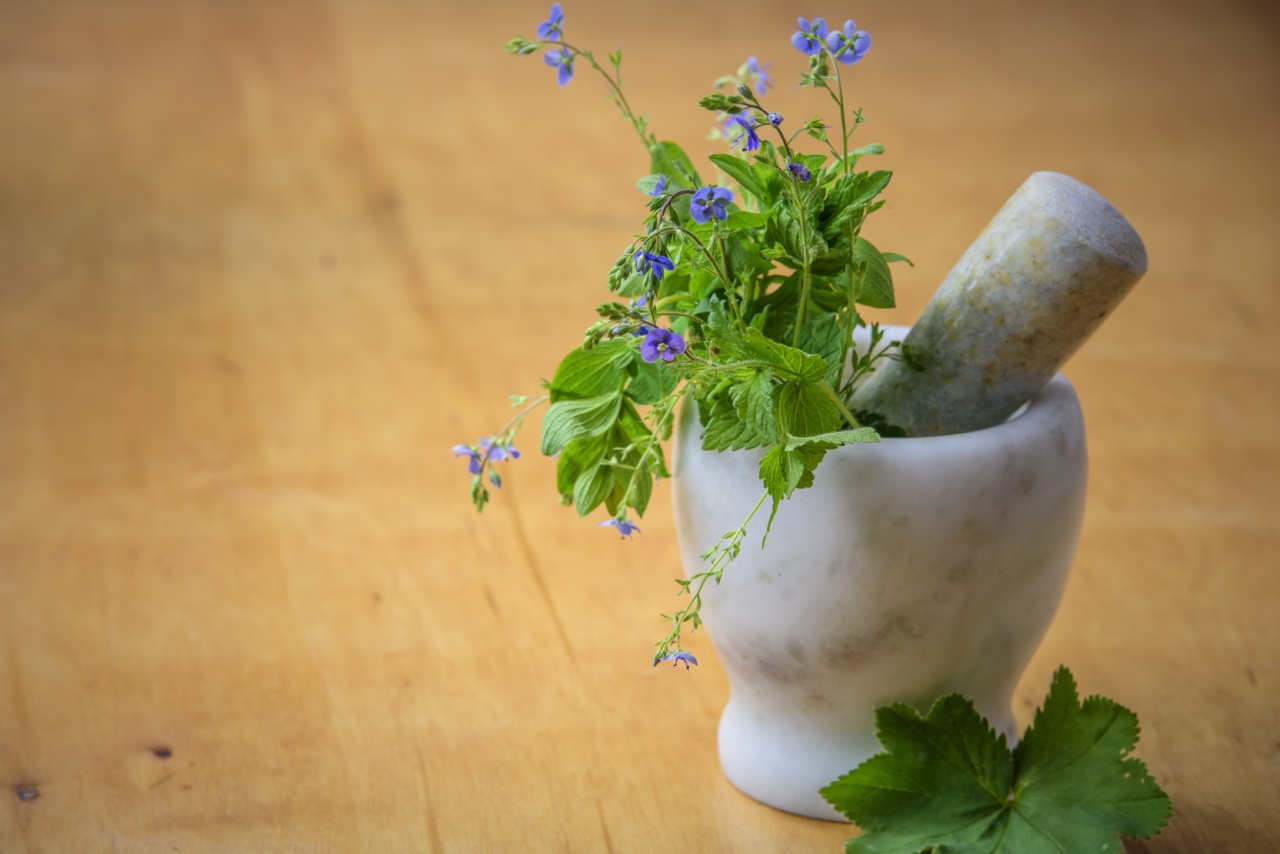The prostate is a small gland located just below the bladder in men. It plays a crucial role in the reproductive system by producing and storing seminal fluid.
Unfortunately, as men age, the prostate can become prone to various health issues, including enlargement and inflammation. While medical treatments are available, some individuals prefer to explore natural remedies for prostate health. Natural herbs have been used for centuries for their therapeutic properties and can offer potential relief from prostate-related problems.
In this article, we will explore ten natural herbs that are known to support prostate health.
Saw Palmetto
Saw palmetto is perhaps one of the most well-known herbs for prostate health. It is derived from a small palm tree native to the southeastern United States.
Saw palmetto is rich in fatty acids and phytosterols, which are believed to help reduce inflammation and block the conversion of testosterone into dihydrotestosterone (DHT), a hormone responsible for prostate enlargement. Studies have shown that saw palmetto can alleviate symptoms associated with benign prostatic hyperplasia (BPH), such as frequent urination, weak urine flow, and urinary retention.
Stinging Nettle
Stinging nettle is a perennial herbaceous plant that is widely distributed in Europe, Asia, and North America.
While the plant itself may cause discomfort upon contact due to tiny hairs on its leaves, the roots of stinging nettle have been traditionally used for various medicinal purposes. Stinging nettle contains compounds that can help reduce inflammation and promote healthy prostate function. It may also help improve urinary flow and alleviate BPH symptoms.
Additionally, stinging nettle is a rich source of vitamins and minerals that can support overall prostate health.
Pumpkin Seed
Pumpkin seeds have a long history of use in traditional medicine for promoting prostate health. They are an excellent source of zinc, a mineral essential for maintaining optimal prostate function.
Zinc deficiency has been linked to an increased risk of prostate enlargement and other prostate-related issues. Consuming pumpkin seeds regularly can help ensure an adequate intake of zinc and protect the prostate from potential problems. Pumpkin seeds also contain antioxidants that can combat oxidative stress and support overall prostate health.
Pygeum
Pygeum, also known as African plum extract, is derived from the bark of the Pygeum africanum tree. It has been used in African traditional medicine for centuries to treat urinary problems associated with an enlarged prostate.
Pygeum extract contains various beneficial compounds, including phytosterols, pentacyclic triterpenes, and ferulic esters. These compounds possess anti-inflammatory properties and can help reduce prostate inflammation, improve urinary symptoms, and promote prostate health.
Green Tea
Green tea is renowned for its numerous health benefits, thanks to its rich content of polyphenols, catechins, and antioxidants. These bioactive compounds have been shown to have anti-inflammatory, anti-cancer, and antioxidative properties.
Studies have indicated that consuming green tea regularly might help prevent prostate cancer development and slow down the progression of prostate enlargement. Moreover, green tea can support overall prostate health by reducing inflammation and oxidative stress.
Curcumin
Curcumin is the active ingredient found in turmeric, a vibrant yellow spice commonly used in Indian cuisine. It has powerful anti-inflammatory and antioxidant properties.
Curcumin has shown promise in promoting prostate health by inhibiting the growth of prostate cancer cells, reducing inflammation, and suppressing tumor formation. Its potent antioxidant activity can also help protect the prostate from oxidative damage. Combining curcumin with black pepper or piperine can enhance its absorption and bioavailability.
Nettle Root
Nettle root, or Urtica dioica, is distinct from stinging nettle and has long been used in traditional herbal medicine to support prostate health.
The root extract of nettle contains several bioactive compounds, including β-sitosterol, lignans, and polysaccharides that possess anti-inflammatory and antioxidant properties. These compounds help inhibit the conversion of testosterone to DHT and reduce prostate inflammation. Nettle root may also enhance urinary flow and alleviate BPH symptoms.
Red Clover
Red clover is a legume that contains various beneficial compounds like isoflavones, flavonoids, and coumarins. These compounds have estrogen-like properties and can help balance hormone levels in the body.
Red clover has been traditionally used to alleviate symptoms associated with benign prostatic hyperplasia and support prostate health. Its anti-inflammatory effects can help reduce urinary frequency, urgency, and improve overall prostate function.
Garlic
Garlic, a well-known culinary ingredient, has also been valued for its medicinal properties for centuries. It contains several sulfur compounds, including allicin, which has potent anti-inflammatory, antimicrobial, and antioxidant effects.
Garlic has demonstrated potential in preventing the development and progression of prostate cancer. Its antioxidants can also protect the prostate tissue from oxidative damage. Consuming garlic regularly may contribute to maintaining prostate health and reducing the risk of prostate-related diseases.
Ginger
Ginger is a versatile herb commonly used as a spice and traditional medicine. It contains gingerol, a bioactive compound with potent anti-inflammatory and antioxidant properties.
Ginger has shown potential in inhibiting tumor growth, particularly in prostate cancer cells. Its anti-inflammatory effects can also help reduce prostate inflammation and alleviate BPH symptoms. Including ginger in your diet or consuming ginger supplements may provide additional support for prostate health.































